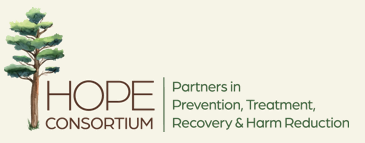For Clients & Families
Medication-Assisted Treatment
Medication-assisted treatment (MAT) is an evidence-based treatment option for individuals with an opioid use disorder. To learn more about treatment options for opioid use disorder order, including MAT, please see the Substance Abuse and Mental Health Services Administration (SAMHSA) resource entitled Decisions in Recovery: Treatment for Opioid Use Disorder Handbook.
For more information about buprenorphine and buprenorphine combination products (e.g., Suboxone), please see the resources below:
- The Facts About Buprenorphine for Treatment of Opioid Addiction
- What is Buprenorphine Treatment Like?
- How Buprenorphine Works
- Suboxone Medication Guide
- Suboxone – Important Safety Information
For more information about naltrexone (Vivitrol), please see the resource below:
There are no medication-assisted options for the treatment of methamphetamine use disorder.
Safety
Opioids work on the same part of the brain that controls breathing, which means that in high doses, opioids can cause respiratory depression and death.
For more information about opioid overdose prevention and treatment, please see the resources below:
- Opioid Safety and Overdose Prevention – A Guide for Patients and Caregivers
- Narcan Nasal Spray Quick Start Guide
- Nalox-Zone Box Guide
- Opioid Overdose Resuscitation
- SAMHSA Opioid Overdose Prevention Toolkit: Safety Advice for Patients & Family Members
- SAMHSA Opioid Overdose Prevention Toolkit: Five Essential Steps for First Responders
- SAMHSA Opioid Overdose Prevention Toolkit: Recovering from Opioid Overdose – Resources for Overdose Survivors & Family Members
Methamphetamine overdose can be acute or chronic. Signs of acute overdose may include difficulty breathing, chest pain, irregular heartbeat, heart attack, stroke, seizures, severe agitation, paranoia, extremely high blood pressure, and kidney damage or failure, and of which can be life-threatening. Medical attention should be sought immediately.
For more information about methamphetamine overdoses, please see the resource below:
Other methamphetamine-related safety concerns are caused by the chemicals used in the methamphetamine “cooking” process.
For more information about the human health hazards presented by environments in which methamphetamine is or was produced, please see the resources below:
- Wisconsin Department of Health Services – Meth Lab Cleanups
- USDA Forest Service Law Enforcement Investigations – Dangers of Meth Labs
Recovery
Local recovery support for any individual affected by substance abuse in the HOPE Consortium region is available through the Marshfield Clinic Health System AmeriCorps Recovery Corps Program (click here for additional information).
For more information about wellness as it relates to recovery, please see the resource below:
According to the Substance Abuse and Mental Health Services Administration, smoking tobacco causes more deaths among clients in substance use disorder treatment than the alcohol or drug use that brought them to treatment in the first place.
For more information about quitting tobacco, please see the resources below:
Resources for Family and Friends
Local recovery support for any individual affected by substance abuse, including family members and friends of individuals with a substance use disorder, in the HOPE Consortium region is available through the Marshfield Clinic Health System AmeriCorps Recovery Corps program (click here for additional information).
For more information for families about substance abuse treatment, please see the resource below:
Children’s Hospital of Wisconsin (CHW) Resources
- CHW Parenting Resources
Learn more about CHW parenting programming, the home visiting program and how to refer a family.
- CHW Community Services Referral
Referral form that can be printed for families to participate in the CHW’s Community Services Program.
